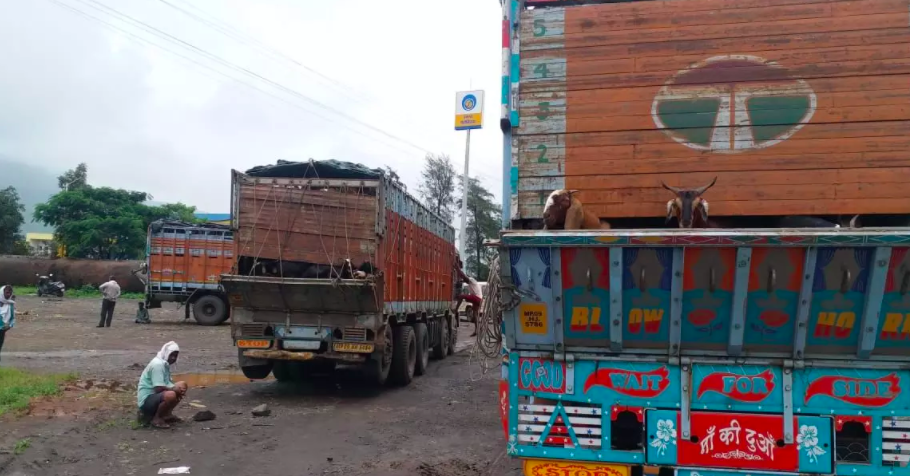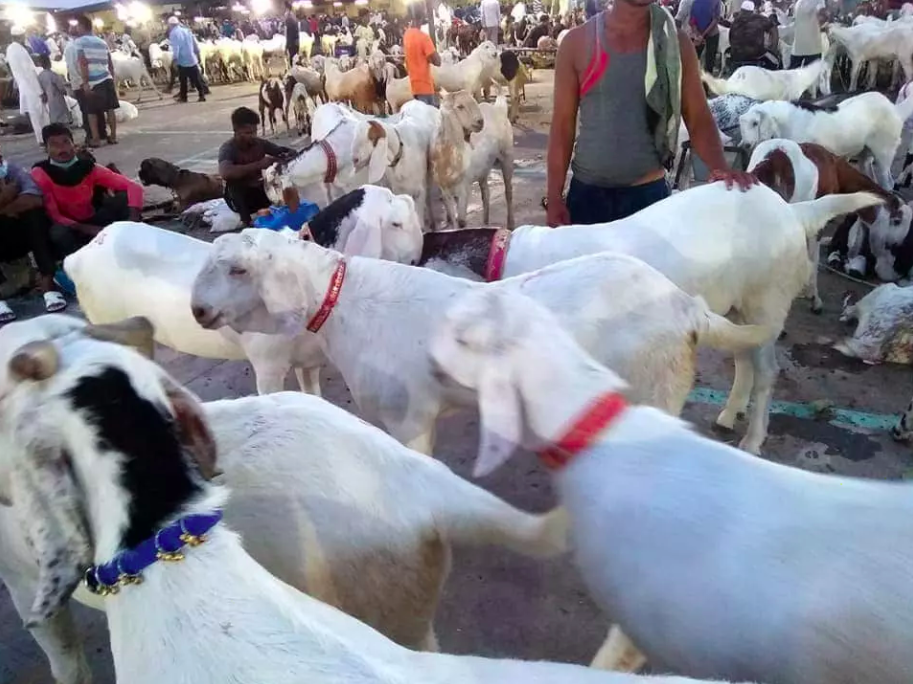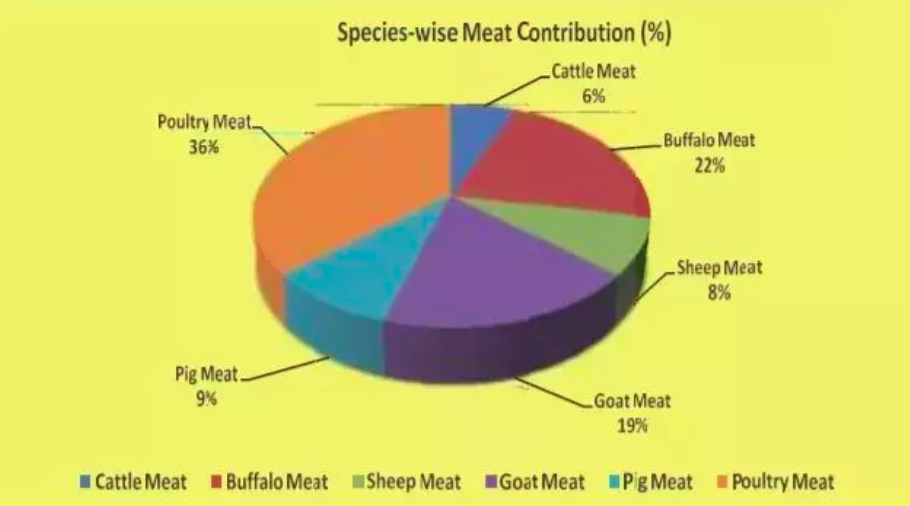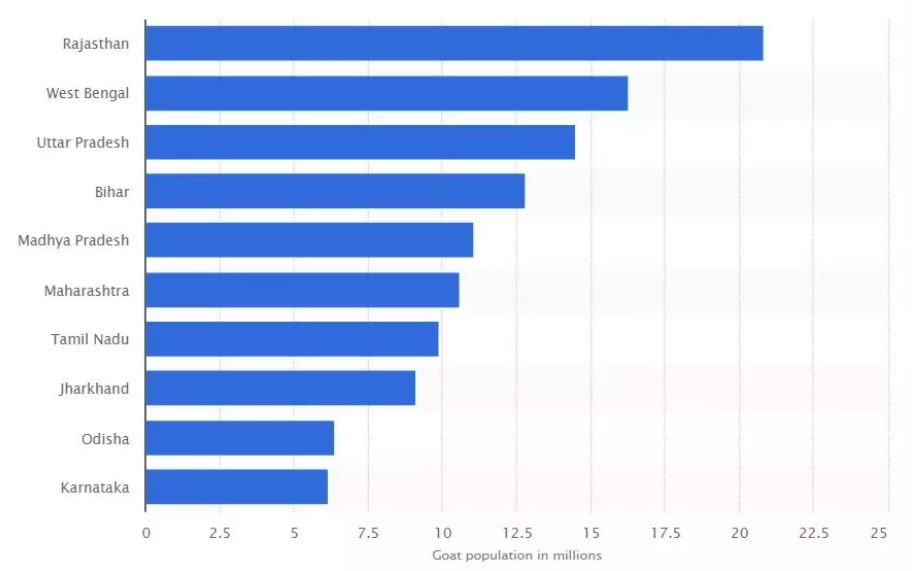Goat sales fail to pick up despite Bakri Eid, adding to the goat farmers’ woes
Indian goat farmers, who have been facing losses for the past several months, hoped to earn well during Bakri Eid, but their hopes were short-lived.


Despite Bakri Eid, goat sales are dismal this year
Thousands of trucks carrying goats from states like Rajasthan, Uttar Pradesh, Madhya Pradesh, and West Bengal are waiting at different borders, seeking permission to enter Maharashtra. Their destination is Deonar goat mandi, Asia’s largest goat market, as Eid Al Adha, which is also known as the Bakri Eid, is being celebrated from July 31 to August 3, 2020.
“We rear goats through the year hoping for a good price during Bakri Eid,” said Pradeep, one of the truck drivers currently waiting for permission. He is from Kannauj in Uttar Pradesh. “We do not get as good a price for our goats locally as at Deonar mandi, but there is little hope of that now. I have brought my goats this far at a huge expense. If I am not allowed to enter the state, I would suffer massive loss,” Pradeep told Gaon Connection.

Deonar abattoir receives goats from across the country. During Bakri Eid, the numbers soar high even higher. However, this time, due to the lockdown in view of the COVID-19 pandemic and subsequent restrictions imposed by different governments, the sale of goats has been dismal. The cattle farmers across the country are in jeopardy due to the nationwide closure of goat mandis and the prices of goats have dipped by thirty per cent.
“Thousands of goats have come on trucks to the state border. Being a large mandi with huge demand that far exceed the local supply, Mumbai’s Deonar mandi receives animals widely from other states such as Rajasthan and Uttar Pradesh. People are still waiting but the police are not letting them into the state,” said Aqeel Tade, chairman of the All Maharashtra Khatik Association and Public Trust.
Various breeds of goats are reared in different parts of the country. Major goat breeds in India are Sirohi, Beetle, Marwari, Barbari, and Jhalvadi. Some of these are reared for milk as well as meat whereas a few are raised only for their meat.

India is the largest exporter of goat meat in the world. According to APEDA, India had exported 18,425 metric tonnes of meat in 2018-19, with a total value of Rs 790.65 crore. India exports meat to countries like UAE, Saudi Arabia, Qatar, Kuwait and Oman. According to data from the Central Goat Research Institute (CIRG), about 942.93 thousand tonnes of goat meat is produced in the country annually. 3.301 crore people in the country associated with the goat-farming industry.
Maharashtra government had allowed the online sale of goats. Under this, big goat-farm owners are selling goats through WhatsApp, Facebook and other portals. Many such deliveries, however, wait at the border currently. “It is a very difficult time indeed, the government had earlier given permission to sell the goat online, but is not allowing goats to come to Maharashtra from the last four days,” admitted Tade.
Mohammad Izhar, who operates Alam Goat Farm at Dubagga in Lucknow, Uttar Pradesh, has a more than a hundred goats on the farm currently. Traders from Bihar and Calcutta used to come to him to buy goats but this time, hardly 10 of his goats were sold.
“Lockdown had brought more troubles in its wake. In the beginning, the fodder prices had gone up, the goat diet costing Rs 15 went up to thirty rupees,” Izhar told Gaon Connection. “Despite Bakri Eid, only 10 goats have so far been sold, I still have a stock worth 9-10 lakh rupees as unsold,” he added. He does not have much hope left.
According to the 20th Animal Census, the number of goats in the country is 148.9 million. The share of goat meat in the country’s total meat production is 19 per cent.

Al Faiz, a resident of Nandgaon in Nashik, is also stranded at the border with a truck full of 90 goats. He was taking the goat to Kalyan mandi when he was stopped from entering Mumbai. “We all are stranded, hopelessly. People are grazing their goats, otherwise the goats will die of hunger and thirst,” Faiz said.
Rajasthan is the leading state in goat rearing within the country followed by West Bengal and Uttar Pradesh.

Jawaluddin Khan, a goat farmer from Ajmer in Rajasthan, has more than fifty goats now, predominantly male. “We have a goat mandi in Ajmer that operates twice every month. There, buyers come from afar,” Khan told Gaon Connection. “There used to be an even bigger crowd during Bakri Eid, but this time, the mandi has fallen silent, the goats are not getting sold,” he said. “Their fodder costs so much. Only when the bigger goats are sold, we bring in the smaller ones for rearing, but this time the big goats are not getting sold,” he sighed.

